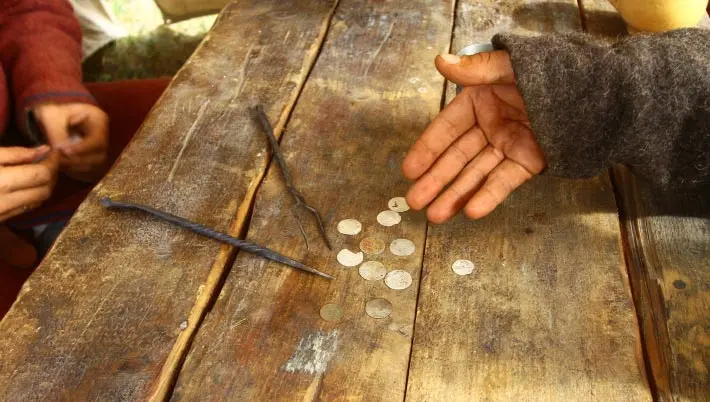Today’s casino visitors take it for granted that they’ll have dozens of choices from which to choose as they play for real money. But in ancient times, gamblers generally had one or two options from which to choose. The game choices varied according to era, region and local laws. From pre-historic man to the casino online real money of today, what does history tell us about how gaming enthusiasts gambled?
Gaming History
Wagering something of value on an event with an uncertain outcome has been a part of human culture since the dawn of time. Gambling has traditionally been seen as an entertaining pastime but historically it has also reflected societal values.
Many societies have outright banned gambling at specific times in their history and then embraced it just a few short decades afterward. The complicated relationships that various jurisdictions have with gambling reflects the differing views of the individuals who influence that country’s laws and statutes.
Anthropologists trace the origins of gambling to prehistoric times when, as early as 3000 B.C., ancient civilizations engaged in rudimentary forms of wagering on games of chance. Evidence of ancient gambling has been discovered in Japan, Egypt and Greece.
Dice made from bones and stones have been discovered in Mesopotamia in archaeological sites that date back 4000 years. Three thousand years ago, Chinese peasants were playing an early form of keno – proceeds from this government-sponsored lottery are said to have funded the building of the Great Wall of China and wars against the Mongolian invaders. Players engaged in other types of Chinese betting games as part of religious rituals as well as for entertainment.
Soldiers in armies of many countries played betting games and this led to the migration of many of these games from one region to another. Senet, a board game played in ancient Egypt, made its way from Egypt to other regions thanks to soldiers stationed in the outposts of the Egyptian empire.
Dice games were popularized by Roman soldiers who moved across the Roman empire, playing dice games like Tali and Tabula. In Persia, Nard, an early form of backgammon, was a betting game that Persian soldiers carried with them across the Persian territories. The Asian-favorite game of Fan-Tan originated in China while Hazard and Knucklebones spread around the world thanks to Viking warriors – Hazard is believed to be an early form of today’s game of Craps.
Medieval and Renaissance Europe
Even though gambling was a moral concern for European rulers and Church authorities during the Medieval era and the Middle Ages, gambling continued to be a favored pastime, especially among the upper class which bet on tournaments, dice, games and even on chess.
Even while condemning gambling in religious spaces, little was done in most areas to outlaw or discourage it. Lotteries began to pop up to fund public projects such as the construction of churches and bridges. The first recorded European lottery took place in 15th century France.
Today’s casinos owe much to the groundwork that was laid in Europe. During the 17th and 18th century, organized gambling establishments emerged in Europe, beginning with the Venice Ridotto which opened in 1638. Many of today’s casino favorites, like roulette and baccarat, were introduced in the French Riviera casinos of that era.
Gambling migrated to the Americas with European settlers and the popular games of Europe, such as blackjack and poker, quickly became favored in the New World. America’s first casinos weren’t those built in the 1930s in Vegas but rather those that operated on riverboats that sailed along the Mississippi River in the 19th century.
Legalization and Expansion
By the 20th century, gambling was being legalized in increasing numbers of jurisdictions around the world. Macau became the center of Asian casino gambling and many countries in Africa, including South Africa, saw an increase in gambling options along with more favorable legislation.
In the United States, the introduction of online sports betting spread to other types of wagering opportunities – today the majority of US players can play casino games legally in their own States at local casinos and/or online.
Digital gambling platforms have transformed the casino industry in other ways as well. Around the world, gamers can access virtual casinos, sports betting sites and poker rooms which allow them to play for real money at any time and from any location on their personal PC or their handheld mobile device.
Surprising Ancient Games at the 21st Casino
Many of today’s casino games have surprisingly ancient origins. One example of a historical game that is as popular today as it was when it was first introduced is Pai Gow Poker, a poker variation that started out as a tile game during China’s Tang dynasty.
The game which was played by members of China’s upper classes, combined strategy, luck and skill. Players formed “hands” with their tiles that would beat the dealer and the other players. The focus of the game was on the complex hand rankings.
The traditional Pai Gow influenced today’s Pai Gow Poker. Pai Gow Poker first made its appearance in 1980 in a poker variation that focused on forming “high” hands vs. “low” hands and playing with 7 tiles/cards. As with other casino games that evolved throughout history, Pai Gow Poker pays homage to the traditional game as it blends heritage with modern gambling entertainment.
Bring history to life with casino gaming fun!


